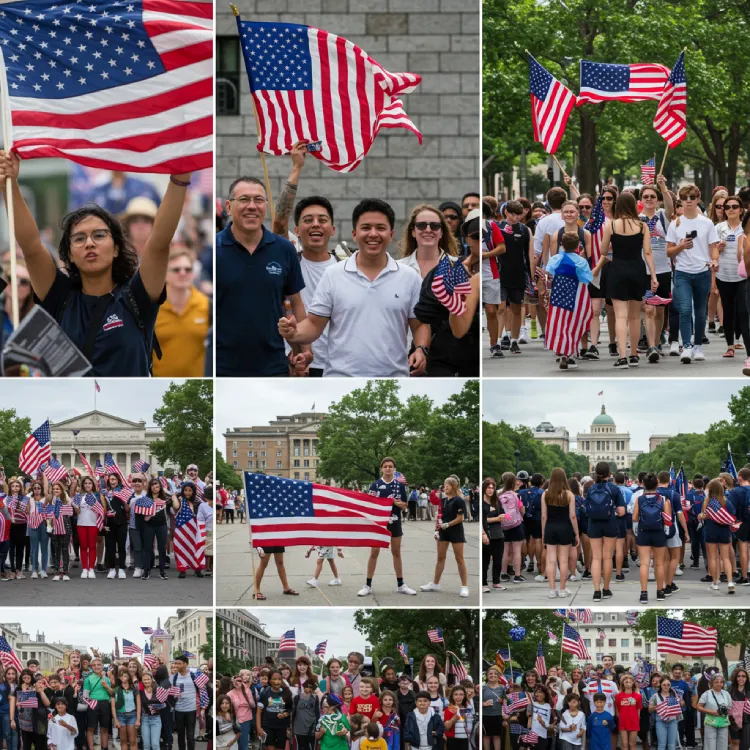Beyond the Fireworks: Global Takes on the Fourth of July
The Fourth of July. For Americans, it’s a day of backyard barbecues, flags flying proudly, fireworks booming into the sky, and a sense of pride for a nation built on independence and self-determination. But what happens when the Fourth of July is observed from afar—in cities like Berlin, Paris, Manila, or even Reykjavik? Across the globe, American Independence Day inspires a surprising range of reactions: from heartfelt appreciation and cultural fusion to ironic celebrations and subtle political commentary.
This article dives into the many ways countries and communities around the world recognize, celebrate, or subvert American Independence Day, shedding light on both international admiration and critique.
1. Genuine Admiration: Honoring Shared Values
In many nations with historical ties to the United States or a strong appreciation for American ideals, July 4 is met with sincere acknowledgment.

France: A Revolutionary Connection
France’s support of the American Revolution forged a bond that still resonates. In Paris, the American Embassy hosts receptions with speeches, food, and fireworks, and American expats gather in public parks or American-themed restaurants. Some patisseries even sell red-white-and-blue macarons or cupcakes.
The Philippines: A Legacy of Friendship
Though complex, the U.S.-Philippine relationship remains close. Until 1962, July 4 was celebrated as the Philippines’ Independence Day. Today, it’s known as Philippine-American Friendship Day. American-themed parties, concerts, and mall events still occur, especially in regions with American ties or military presence.
Liberia: Founded by Freed American Slaves
Liberia shares deep roots with the United States. Its capital, Monrovia, is named after James Monroe, and July 4 is often observed alongside its own Independence Day (July 26). Celebrations include diplomatic receptions, community events, and cultural acknowledgments of shared democratic aspirations.
2. The Expat Experience: Bringing Home Abroad
Thousands of Americans live abroad, and for them, the Fourth of July is a comforting tradition and an opportunity to unite with fellow citizens.
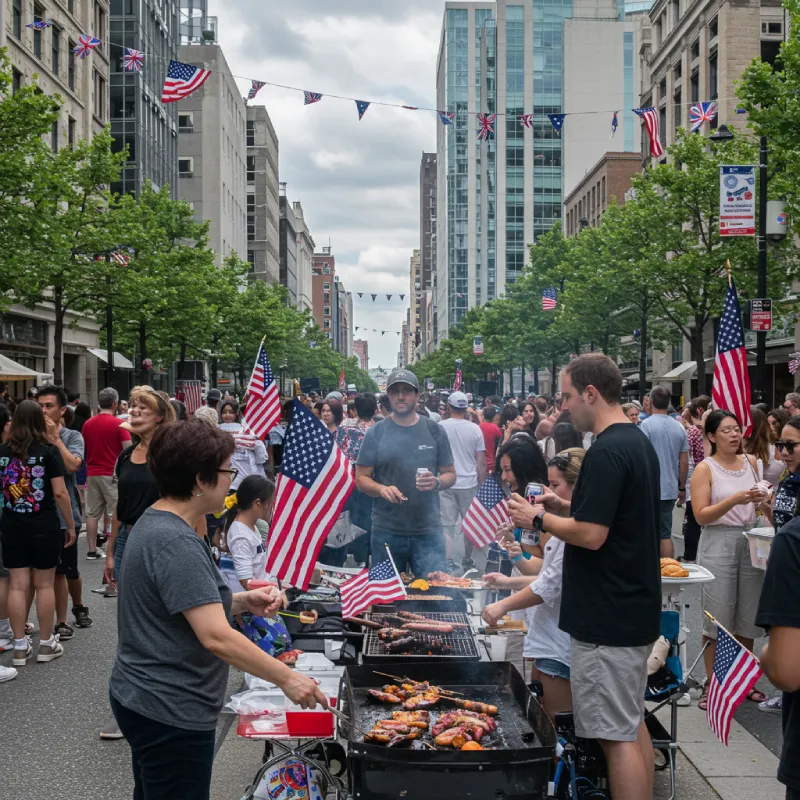
Embassy and Consulate Events
U.S. embassies worldwide host formal receptions featuring American dishes, live music, flag ceremonies, and remarks from ambassadors. These events serve as soft diplomacy, fostering goodwill and cultural exchange.
Community Barbecues and Local Gatherings
In cities like Tokyo, London, Berlin, and Dubai, American expat groups throw July 4th parties in public parks or rented halls. Think burgers, beer, baseball, pie-eating contests, and playlists full of Springsteen and Dolly Parton.
Such gatherings blend nostalgia, pride, and outreach, often welcoming locals to learn about American culture.
3. Pop Culture & Americana Abroad
Even outside diplomatic circles, American culture is celebrated worldwide, especially through food, music, and fashion.

Global Cities Join the Party
- Melbourne, Australia: Bars with American themes host trivia nights, chili cook-offs, and costume contests.
- Paris, France: Restaurants like “Breakfast in America” serve pancakes, burgers, and root beer floats to a packed crowd.
- Shanghai, China: International schools hold July 4th parades, games, and family-friendly cookouts.
- São Paulo, Brazil: American-style diners run Independence Week specials with hot dogs, milkshakes, and fries.
These events often mix admiration with novelty, appealing to expats, world travelers, and curious locals alike.
4. Satire, Irony & Cultural Commentary
In some parts of the world, American Independence Day is viewed through a lens of irony or mild satire—a reflection of America’s cultural dominance or political decisions.
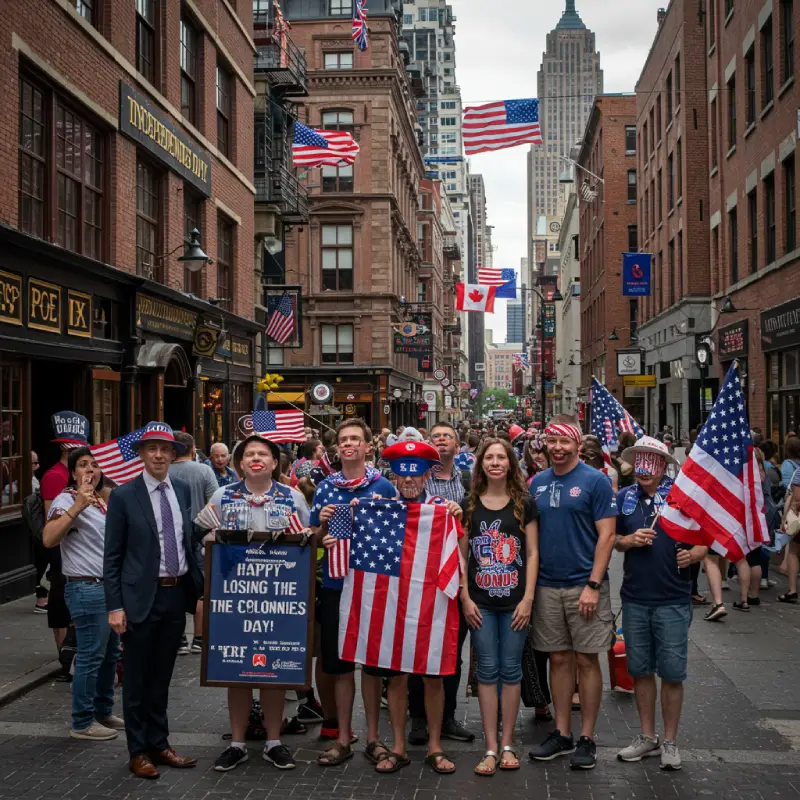
United Kingdom: “Happy Losing the Colonies Day!”
While official diplomacy is respectful, British pubs sometimes poke fun at the day with cheeky drink specials, themed quizzes, or menu items like “Freedom Fries” and “1776 Ales.”
Canada: Un-Independence Day
In Montreal, bars may host American parody nights featuring cowboy hats, fake U.S. accents, and humorous jabs at American politics. The jest is affectionate and friendly, emphasizing close ties.
Iceland & Germany: Cultural Mashups
In Reykjavik, July 4th parties blend U.S. pop culture with subtle critique. In Berlin, indie venues may host themed nights that combine American music with visual projections of past political speeches—a balance of celebration and reflection.
5. Along the Border: Mexico’s Mixed Celebrations
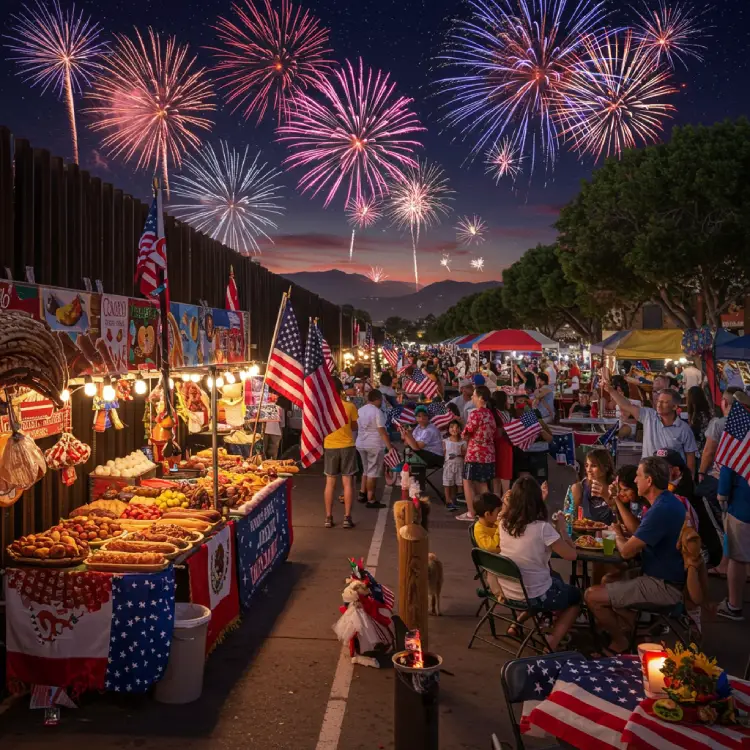
In border towns like Tijuana, Ciudad Juárez, or Mexicali, July 4th is both economic and cultural. Vendors sell U.S. flags, American radio is loud, and fireworks sometimes light the skies. Families with cross-border connections may celebrate both Mexican and American holidays with equal gusto.
Restaurants cater to American tourists with July 4th menus and entertainment. The result? A rich cultural fusion where nationalism takes a backseat to shared identity and family.
6. Military Fireworks Overseas
U.S. military bases are among the most iconic places to see full-scale Fourth of July celebrations outside the United States.
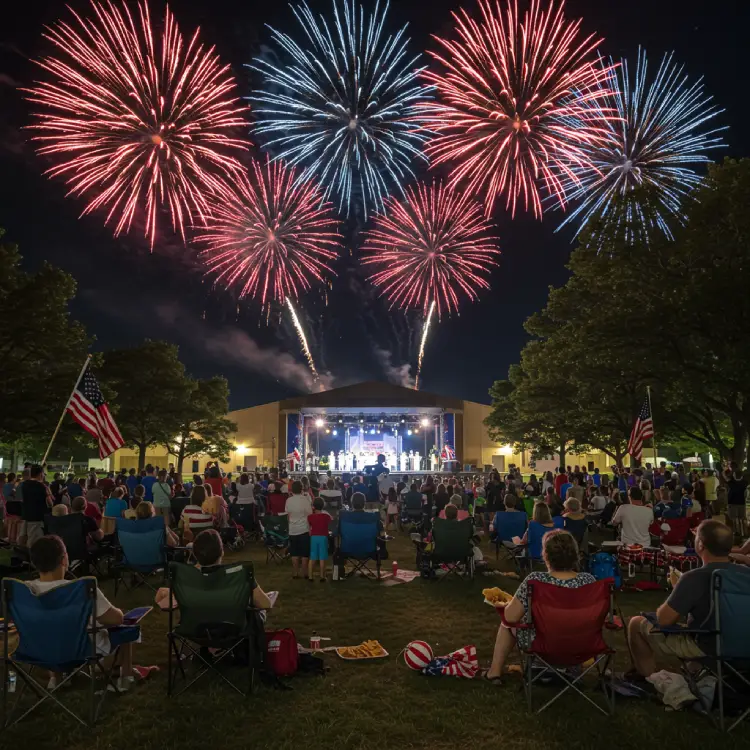
On Base:
- Fireworks, parades, and ceremonies.
- Outdoor concerts by U.S. military bands.
- American snacks, carnival rides, and kid-friendly activities.
- Firepower demonstrations or flyovers in some cases.
Locals are often invited to these events, promoting international camaraderie and cultural exchange.
7. Digital Celebrations Around the World
The internet makes July 4th a global phenomenon.
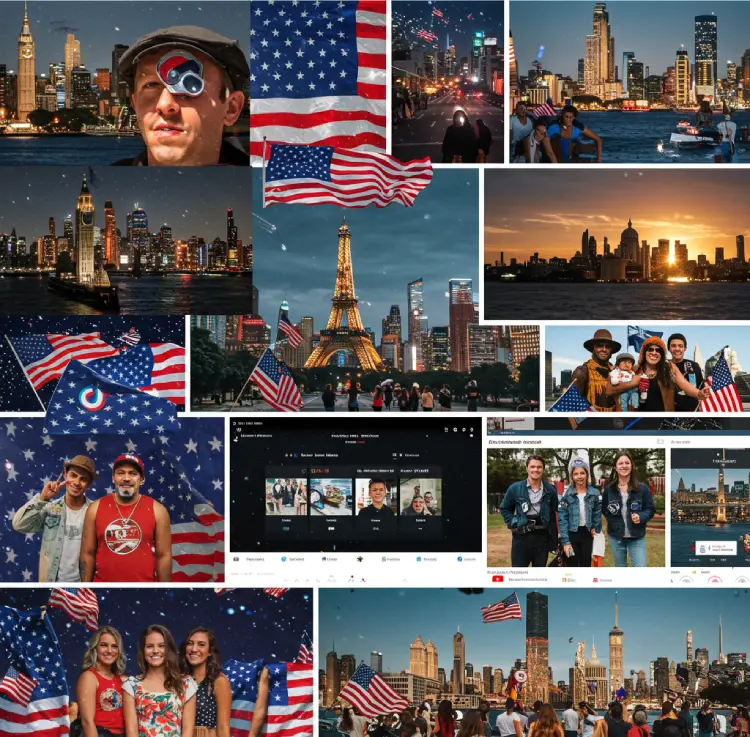
Social Media Trends:
- TikTokers abroad post recipes for American classics (mac and cheese, ribs, peach cobbler).
- Influencers wear red, white, and blue outfits and share memories of U.S. travels.
- YouTube creators react to American parades, fireworks, or presidential speeches.
- Global brands like Nike, Coca-Cola, and Apple post themed content for global markets.
The hashtag #4thofJuly trends globally, proving the power of American cultural reach.
8. Political Resistance and Symbolic Rejection
In countries where relations with the U.S. are strained, July 4th can be marked by protests or silence.
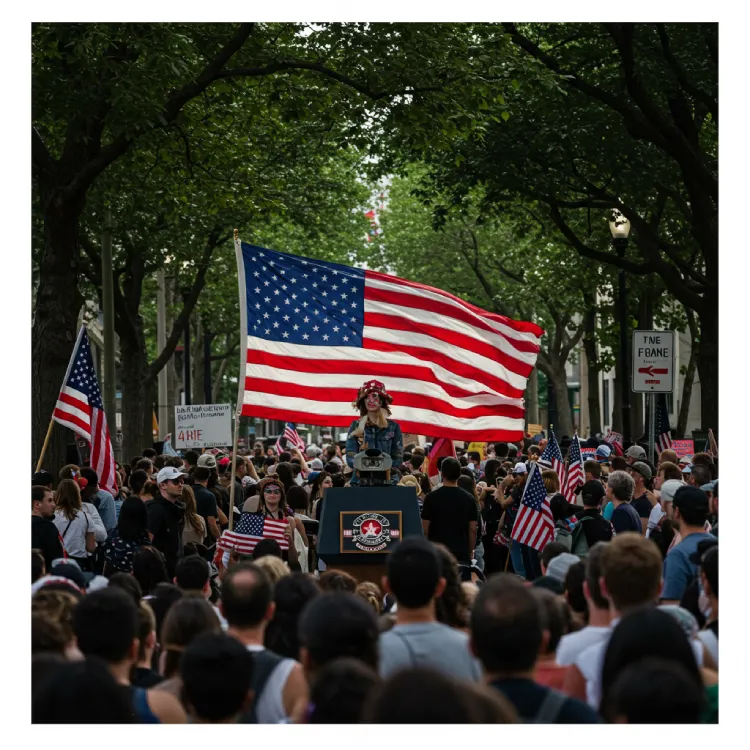
Examples:
- Iran and North Korea: July 4 sometimes features anti-U.S. demonstrations, flag burnings, or propaganda campaigns.
- Venezuela and parts of the Middle East: State-run media may portray U.S. Independence Day as hypocritical or imperialistic.
However, these actions reflect government positions, not always the views of everyday citizens, many of whom admire aspects of American culture.
9. Educational Uses in International Schools
American international schools and some bilingual institutions use July 4th to teach lessons about democracy, independence, and global citizenship.

Activities:
- U.S. history quizzes, dress-up parades, and patriotic crafts.
- Discussions about the meaning of independence worldwide.
- Meals that replicate colonial or regional American dishes.
These educational events foster awareness of history and encourage students to reflect on freedom beyond borders.
Final Thoughts: The World Watches the Fireworks
Though July 4th is uniquely American, its influence stretches across borders. Whether it’s a barbecue in Berlin, a political protest in Tehran, a meme-filled satire night in Montreal, or a diplomatic reception in Manila, the way the world engages with American Independence Day reveals as much about global perception as it does about the U.S. itself.
In an era of worldwide connectivity, cultural exchange, and diplomacy, the Fourth of July is not just about America’s past. It’s about how the rest of the world sees freedom, identity, and celebration today.
So whether you’re biting into a burger in Melbourne or watching fireworks on a naval base in Naples, remember: the Fourth of July—like so many modern traditions—has truly gone global.
